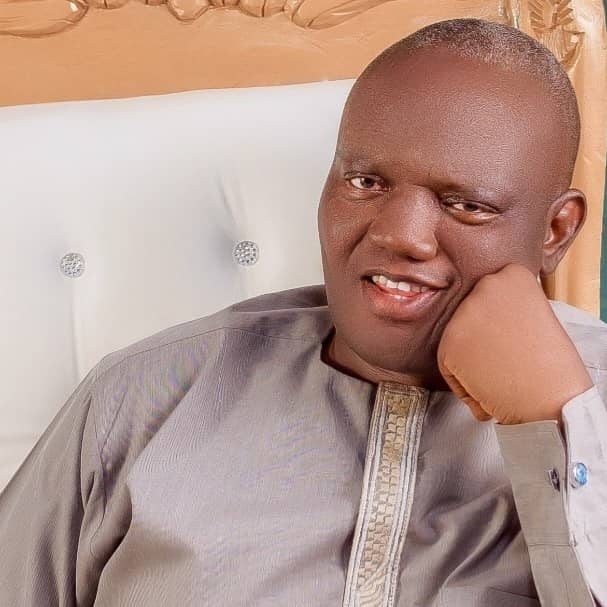Embracing the African Renaissance: A Call for True Transformation. By Chidi Ekeh

In the heart of Africa’s collective memory, there lies a vision that once burned like a blazing sun, casting its radiance on the minds of leaders who dared to dream. Men like Thomas Sankara, Patrice Lumumba, and Kwame Nkrumah stood as giants, not just in stature, but in the depth of their ideals. Their legacy echoed a profound truth—one that envisions an Africa where equality of all races, education, and healthcare are not distant dreams but the very fabric of our society. This vision is not a relic of the past; it is the call of the present, beckoning us to embrace a renaissance—a true reawakening of the African spirit.
In the arena of nations, where history and destiny intertwine, the African voice has too often been muted, the narrative shaped by hands far removed from our shores. But within our continent’s tapestry, a thread of empowerment and self-determination is being woven anew—a thread that promises a renaissance defined by socio-cultural, political, economic regeneration, and an enhanced geo-political standing.
At the heart of this profound vision is the pillar of Socio-Cultural Regeneration. It is a call to arms for us to reclaim our history, our languages, our cultures, and our traditions. Just as the mighty baobab stands rooted in the earth, drawing sustenance from ancestral lands, so too must we draw from our heritage to forge a sense of identity. This is a Renaissance that rejects cultural colonization and embraces the richness of diversity. It is a celebration of the rhythms of Africa, the stories of our ancestors, and the wisdom of our elders—a reawakening that nurtures pride and unity.
Bound together by this cultural renaissance, the Political Regeneration pillar stands as a testament to our commitment to better governance. It is a vision that seeks to eradicate corruption, promote human rights, and ensure social justice. Like the phoenix rising from the ashes, this renaissance calls for political systems that empower citizens, and leaders who prioritize the needs of the people. It dares us to redefine democracy, adapting it to our own realities, rooted in the principle that governance must serve the common good, not the interests of a privileged few.

But a renaissance that stops at cultural pride and political reform would be incomplete. The pillar of Economic Regeneration beckons us to chart a course toward sustainable growth. It is a call to break free from the chains of poverty, inequality, and corruption. Like a river carving its path through the land, this vision insists on economic diversification and innovation. It demands that we harness our resources wisely, not for the benefit of a chosen elite, but for the well-being of all our people.
As the flames of these pillars illuminate our path, they guide us to the final destination—the Improvement of Africa’s Geo-Political Standing. This pillar demands that we rise from the shadows cast by history and claim our place among the nations. No longer shall we approach the global table with cap in hand; we shall stride forward, confident in our own strength. We shall embrace regional integration, stand as harbingers of peace and stability, and reshape the very architecture of global governance.
Like the phoenix rising from the ashes, Africa is poised for renewal. The African Renaissance is not a dream confined to the archives of history; it is a dynamic concept that speaks to our aspirations and potential. And as we look around our continent, we see glimpses of this reawakening taking shape.

Consider the story of South Africa, a nation that refuses to be defined by its past. It is a beacon of hope in the African Renaissance, striving to bridge divides and promote unity. Senegal, too, stands as a testament to the power of cultural pride. With its World Festival of Black Arts and the African Renaissance Monument, it demonstrates that culture can be a force for transformation.
Then there is Rwanda, a nation that rose from the ashes of genocide to become a symbol of progress. Through its commitment to economic development and reconciliation, it embodies the promise of the African Renaissance. Ghana’s “Year of Return” initiative showcases the potential of cultural reconnection to spur economic growth, while Nigeria’s involvement in regional organizations underlines its commitment to shaping the continent’s destiny.
Yet, as we celebrate these examples, we must remember that the African Renaissance is not the pursuit of a few nations; it is the collective ambition of an entire continent. It is a call to awaken the spirit of Ubuntu—the understanding that our destinies are interwoven and that our progress is a shared endeavor.
As we journey toward this renaissance, let us remember that its key pillars are not isolated concepts but interconnected threads that weave a tapestry of transformation. Socio-cultural pride nurtures the soil from which political reform blossoms. Economic diversification paves the path toward an empowered geo-political standing. And all of these pillars converge to create a future that embodies the true essence of Africa—a future where our voice is respected, our potential unleashed, and our people thrive.
In the grand narrative of history, we have the power to shape our own chapter. The African Renaissance is not a utopian dream; it is a practical vision rooted in the realities of our continent. It is a call to action—a call to redefine democracy, champion equality, and forge a destiny that is uniquely African.
As we stand at the crossroads of history, let us heed the call of our true fathers—Sankara, Lumumba, Nkrumah—and carry their legacy forward. Let us dare to dream of an Africa where equality, education, and healthcare are not just aspirations, but cornerstones of society. Let us envision a continent where our negotiations with the world are anchored in strength, where our strides on the global stage are matched only by our unity at home.
This is the African Renaissance—a reawakening that transcends borders, unites nations, and propels us toward a brighter future. It is not a distant horizon; it is within our grasp. As we move forward, let us remember the words of Nkrumah: “We face neither East nor West; we face forward.” It is time for Africa to rise, to reclaim its narrative, and to shape its own destiny.
Chidi Ekeh writes from Abuja




